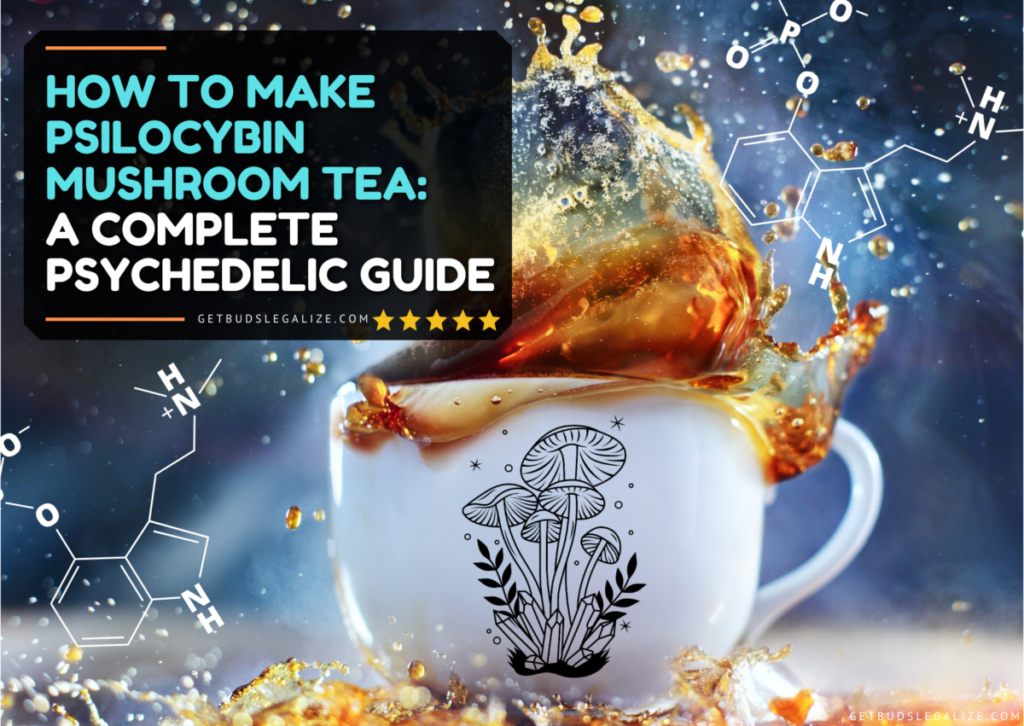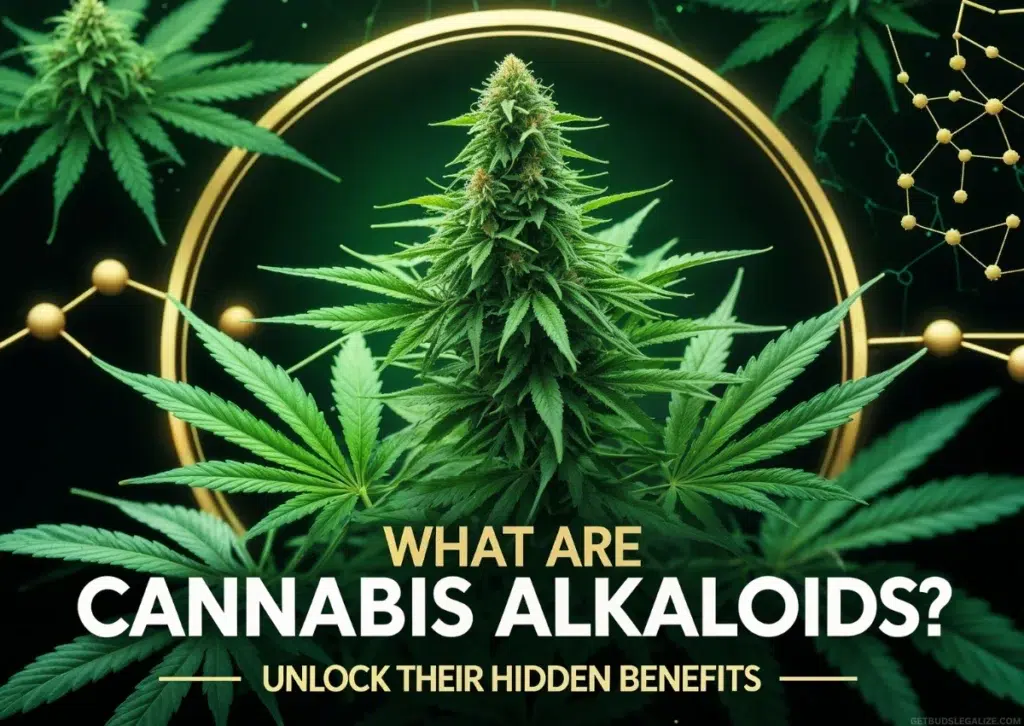Psilocybin Cubensis and Mental Health: Magic Mushrooms for Depression and Psychedelic Therapy
Research into the therapeutic potential of magic mushrooms—especially those containing psilocybin, like Psilocybe cubensis—has experienced a powerful resurgence over the past decade.
Once relegated to the margins of scientific inquiry due to social stigma and strict drug policies, psilocybin is now receiving renewed attention as a powerful tool in mental health treatment.
This shift is largely due to the mental health crisis that continues to escalate globally, coupled with emerging clinical evidence that supports the efficacy of psychedelic compounds for conditions once deemed untreatable.
Table of Contents
- Scientific Background and History
- How Psilocybin Affects the Brain: Mechanism of Action
- Why Mental Health Matters
- Clinical Research on Psilocybin for Treatment-Resistant Depression
- Psilocybin Effects, Risks, and Safety Guidelines
- Strain Variability of P. cubensis
- Toward Genetic Standardization of Psilocybin Therapy
- Legal Status and Future Outlook
- Conclusion
- FAQs
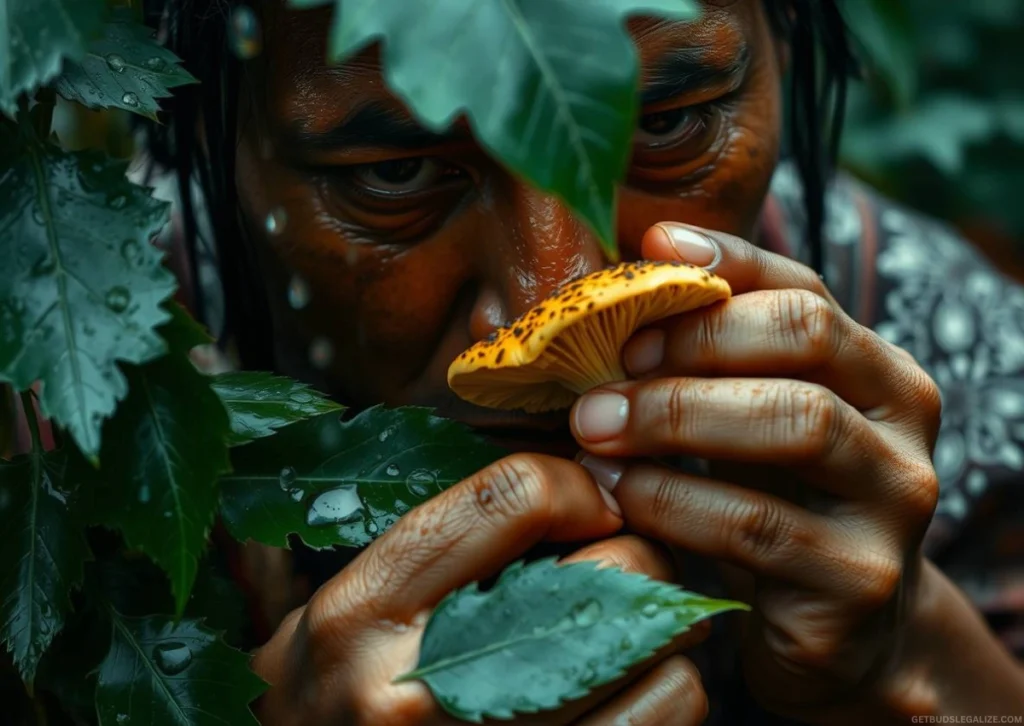
Scientific Background and History
The study of psilocybin mushrooms has seen a major revival. According to PubMed, over 480 studies were published in 2024 alone, highlighting surging academic interest in psilocybin’s therapeutic potential for psychiatric disorders.
Between the 1970s and 1990s, legal restrictions significantly slowed research. But recent support from institutions like the FDA, NIH, and Heffter Research Institute has sparked a new wave of clinical trials worldwide.
Psilocybe cubensis—scientifically documented in Cuba in 1906—is the most widely cultivated psilocybin species. Used traditionally by Indigenous cultures for healing and spiritual rites, it produces four key psychoactive compounds: psilocybin, psilocin, baeocystin, and aeruginascin.
Morphological Characteristics of Psilocybe cubensis:
- Cap (pileus): 16–80 mm wide, white to ochraceous-brown, conic to flat
- Gills (lamellae): Pale gray to sepia, adnate to adnexed
- Stem (stipe): 20–80 mm tall, hollow, yellowish with central darkening
- Spores: Elliptic, 8.8–10.5 microns, yellow-brown in KOH solution
This coprophilous species thrives on herbivore dung, particularly that of cows and horses, making it easy to cultivate and ideal for therapeutic exploration.
How Psilocybin Affects the Brain: Mechanism of Action
When you take psilocybin, your body turns it into psilocin—the compound that causes psychedelic effects. Psilocin acts like serotonin, a brain chemical that affects mood and thinking, and mainly binds to a receptor called 5-HT2A. This changes how you see, feel, and think.
Brain scans show that psilocybin reduces activity in the default mode network (DMN), a part of the brain linked to your sense of self and overthinking.
By calming the DMN, psilocybin helps break negative thought loops and can create feelings of connection, wonder, and emotional release.
In therapy, this often leads to powerful breakthroughs. Many people say the experience changed their lives—not just because of the trip itself, but because of the deep healing it helped unlock.
Related Article:
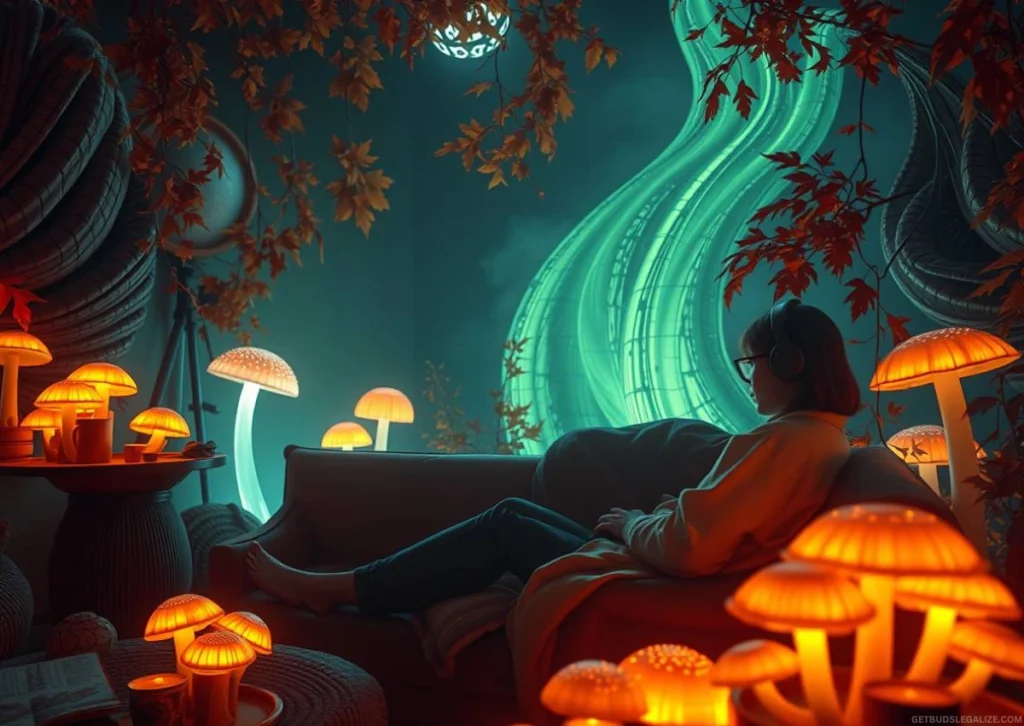
Why Mental Health Matters
Mental health isn’t just about not being sick—it means feeling well, handling stress, reaching your potential, working effectively, and being part of your community.
But today, mental health is a growing concern. The World Health Organization reports that over 300 million people worldwide suffer from depression, and suicide is one of the top causes of death in young adults.
Anxiety, PTSD, and treatment-resistant depression (TRD) are also on the rise. Even though we have antidepressants and talk therapy, up to 30% of people don’t get enough relief from them.
These are the people who may benefit most from new options like psychedelic-assisted therapy.
Clinical Research on Psilocybin for Treatment-Resistant Depression
One of the most promising uses of psilocybin is for treatment-resistant depression (TRD)—a type of major depression that doesn’t improve after trying at least two antidepressants. People with TRD often struggle with suicidal thoughts, hopelessness, and problems in daily life.
Studies from Johns Hopkins University and Imperial College London show that one moderate to high dose of psilocybin, given in a safe and controlled environment, can lead to:
- Rapid relief from depression, often within 24 hours
- Better emotional processing, helping people deal with trauma or grief
- More flexible thinking, breaking out of negative thought loops
- Deep or spiritual experiences that offer new insight and purpose
These benefits often last for weeks or even months, especially when combined with therapy.
It’s important to note that these aren’t casual drug experiences. The sessions are carefully planned and led by trained guides who support the patient before, during, and after the trip.
Psilocybin Effects, Risks, and Safety Guidelines
Psilocybin’s effects can vary a lot depending on the dose, your mindset, and where you take it. Many people report powerful insights and emotional healing, but others might feel confused or anxious during the experience.
Common Positive Effects:
- Feelings of peace or euphoria
- Sharper senses and richer perception
- Deep self-reflection or spiritual awareness
- Emotional release and healing
Possible Side Effects:
- Nausea or vomiting, especially on an empty stomach
- Anxiety or paranoia, more likely in stressful or unfamiliar settings
- Visual changes and time distortion
- Risk of triggering hidden mental health issues like psychosis (in vulnerable people)
Because of these risks, “set and setting” are very important. You need a calm, safe space and a trusted, sober guide—ideally a trained therapist—to make sure the experience is both safe and meaningful.
Related Article:
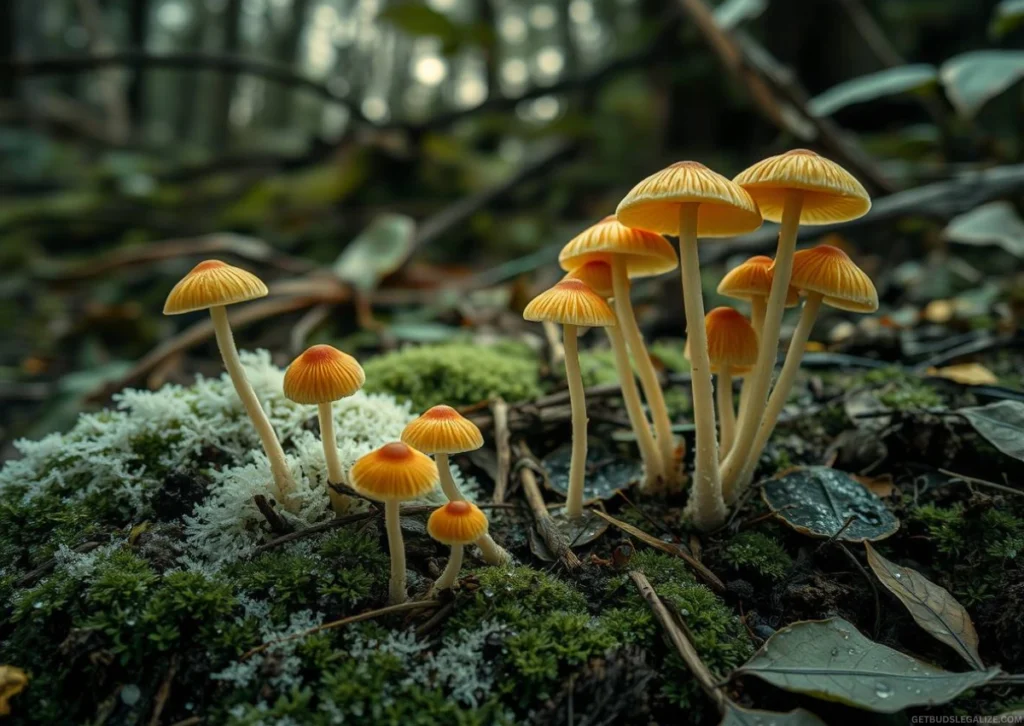
Strain Variability of Psilocybe Cubensis
Not all P. Cubensis mushrooms are the same. Over time, underground growers and mushroom enthusiasts have developed many different strains—each with its own growth pattern, strength, and effects. These strains aren’t officially recognized in science due to legal limits, but they’re well-known in the mushroom community.
Selected Strains:
- Golden Teacher: Balanced effects with a spiritual feel
- B+: Popular beginner strain, often produces large, mellow trips
- Penis Envy: Very strong, often leads to deep inner reflection
- Albino A+: Pale and unique-looking, with moderate effects
- Mazatapec: Linked to Indigenous use in Mexico, meditative and spiritual
This variety makes clinical use more difficult. Two mushrooms that look the same might have very different amounts of psilocybin.
That’s why medical use requires genetic standardization—to ensure accurate dosing, reliable results, and safety. Without clear standards, it’s hard to reproduce clinical outcomes or gain regulatory approval, which could slow psilocybin’s path into modern medicine.
Toward Genetic Standardization of Psilocybin Therapy
As research advances, scientists are working on ways to make psilocybin therapy more consistent by using genomic and metabolomic profiling. This means studying the mushroom’s genes and chemicals to better understand how psilocybin is made.
The goal is to develop strains that offer:
- Consistent strength
- Specific therapeutic effects
- Reliable and easy growing conditions
This kind of precision would help both researchers and patients by making treatment results more predictable. It’s similar to what’s happening in cannabis and ayahuasca research, where specific plant types (chemovars) are used for tailored treatments.
Legal Status and Future Outlook
Despite scientific advancements, psilocybin remains a Schedule I substance in many countries, including the United States, meaning it is officially considered to have high potential for abuse and no accepted medical use. However, this outdated classification is under increasing scrutiny.
Legal Reforms Around the World:
- Oregon, USA: Legalized supervised psilocybin therapy in licensed centers
- Australia: Permits prescription use by authorized psychiatrists for TRD and PTSD
- Canada: Allows medical exemptions, particularly for end-of-life and severe cases
- New Zealand: Recently approved psychiatric use in controlled settings
- Jamaica & Bahamas: No laws prohibiting psilocybin, making them hubs for retreats
- Netherlands: Permits sale of psilocybin truffles through licensed smart shops
Several U.S. cities have also decriminalized natural psychedelics, including Denver, Oakland, Seattle, and Washington D.C. These changes mark a growing global movement toward evidence-based psychedelic policy.
Related Article:
Conclusion
Psilocybe cubensis is no longer relegated to counterculture mythology—it is now at the cutting edge of psychiatric research.
With structured use, medical oversight, and continued scientific investigation, psilocybin could become a mainstream mental health intervention.
From treatment-resistant depression to spiritual healing, P. cubensis is poised to play a transformative role in the future of medicine—provided science and society move forward together.
⚠️ Disclaimer:
This article is intended for educational and informational purposes only and does not constitute medical, legal, or therapeutic advice.
Psilocybin remains a controlled substance in many countries, and its use, possession, or cultivation may be prohibited by law.
Always consult a licensed healthcare provider or legal professional before considering any psychedelic-assisted therapy.
Frequently Asked Questions (FAQs) about Psilocybin Cubensis
Psilocybin cubensis is a species of psychedelic mushroom that contains psilocybin and psilocin—two naturally occurring hallucinogenic compounds. It is one of the most widely cultivated and consumed magic mushrooms globally due to its ease of growth, potent effects, and availability.
Psilocybin is converted into psilocin in the body, which binds to 5-HT2A serotonin receptors in the brain. This interaction alters sensory perception, emotional regulation, and cognitive flexibility—contributing to its therapeutic effects in depression, anxiety, and PTSD.
Psilocybin is the main compound found in magic mushrooms, but it’s not active until your body turns it into psilocin.
Psilocin is what causes the psychedelic effects by interacting with the brain’s serotonin system, changing how you feel, think, and see the world.
Effects vary by dose, mindset, and environment, but commonly include:
- Altered perception of time and space
- Visual or auditory hallucinations
- Euphoria and emotional release
- Spiritual or mystical experiences
- Enhanced introspection and creativity
Side effects can include nausea, anxiety, confusion, or paranoia—especially in high doses or unfamiliar settings.
Yes. Research shows that psilocybin-assisted therapy can greatly reduce symptoms of treatment-resistant depression, anxiety, and PTSD.
It works by helping people break out of negative thought loops and process emotions more deeply. Clinical trials have shown fast and long-lasting improvements in mood, emotional clarity, and overall mental well-being.
Research suggests psilocybin has low toxicity and may result in long-term positive changes, such as:
- Increased emotional openness
- Decreased depressive symptoms
- Improved life satisfaction
However, some individuals may experience lingering anxiety or psychological distress if the experience is not properly integrated.
No, psilocybin mushrooms are not physically addictive. They do not create physical dependence or withdrawal symptoms. However, frequent psychological use can lead to emotional dependence or misuse in some individuals.
Yes. While generally safe under proper supervision, risks include:
- Anxiety or panic attacks
- “Bad trips” in unsafe settings
- Worsening of pre-existing mental conditions
- Rare cases of HPPD (hallucinogen-persisting perception disorder)
- Emotional distress without therapeutic guidance
The Penis Envy strain is often cited as the most potent, containing up to 2–3 times more psilocybin than common strains like Golden Teacher or B+. It produces slower growth but deeper, more intense psychedelic experiences.
P. cubensis grows best at temperatures between 75°F and 80°F (24°C–27°C) during colonization, and around 70°F–75°F (21°C–24°C) during fruiting. High humidity (85–95%) is also essential for proper mushroom development.
Yes—if it’s legal where you live. In places where cultivation is decriminalized or allowed for personal or research use, P. cubensis is one of the easiest psychedelic mushrooms to grow.
Popular methods include PF Tek and monotub setups, both widely used by beginners and hobbyists.
Always check your local laws before starting, as growing psilocybin mushrooms is still illegal in many areas.
A typical psilocybin experience lasts 4 to 6 hours, depending on the dose and individual metabolism. Effects usually peak around 2–3 hours after ingestion and taper off gradually. Some psychological aftereffects may linger for days or weeks.
Psilocybin is still illegal in most countries, usually classified as a Schedule I substance (or equivalent), meaning it’s considered to have no medical use and a high potential for abuse.
However, some places have made exceptions:
- Oregon, USA: First state to legalize supervised psilocybin therapy in licensed centers
- Colorado, USA: Decriminalized personal use; regulated therapy is being developed
- Australia: Since July 2023, approved psychiatrists can prescribe it for depression and PTSD
- Canada: Allowed for specific medical exemptions, especially for end-of-life care
- Jamaica: Unregulated—mushrooms are grown and used openly
- Netherlands: Legal psilocybin truffles sold in licensed smart shops
- Brazil & the Bahamas: Not clearly banned; used in retreats and spiritual ceremonies
Global decriminalization is gaining momentum, but laws still vary greatly by country and region. Always check local regulations before use or possession.
Technically, yes—but it’s not recommended. Psilocybin breaks down at high temperatures, rendering the compound ineffective. Smoking mushrooms does not produce psychedelic effects and may be harmful to the lungs.
Psilocybin is not a sleep aid. While some users report feeling relaxed after a trip, others experience stimulation, intense emotions, or insomnia. Its primary use is for psychological exploration, not sedation.
In rare cases, yes. Psilocybin may trigger psychotic episodes or long-term psychological conditions in people with a predisposition to mental illnesses like schizophrenia or bipolar disorder. Proper screening and supervision are crucial for safe use.
Seizures are extremely rare with psilocybin but may occur in individuals with a history of epilepsy or neurological conditions. Always consult a medical professional before use if you have a preexisting health condition.
Lethal toxicity from psilocybin mushrooms is virtually nonexistent. The lethal dose is many times greater than a typical recreational or therapeutic dose. However, indirect risks—such as accidents, poor judgment, or consuming toxic look-alike species—can pose real danger.
No scientific evidence currently supports that psilocybin causes brain damage. In fact, some studies show it may promote neuroplasticity and increase connectivity between brain regions. However, unsafe use without proper context may lead to emotional trauma.
ILGM Fertilizer:
Feed Your Plants Right

The Ultimate Cannabis Fertilizer – designed to fuel every stage from seedling to harvest.
✅ Feeds 5+ plants
✅ Big savings with bundle
✅ Works in soil, coco, or hydro
✅ Supports bigger, healthier yields
ILGM Plant Protector:
Ultimate Cannabis Protection

Shield your plants from pests and disease—naturally and effectively.
Protect From Seedling to Harvest
✅ Protects up to 20 plants
✅ Works in soil, coco, or hydro
✅ Fights pests & diseases fast
✅ Keep your grow healthy & stress-free









